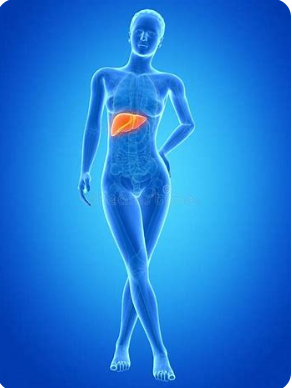Pregnancy introduces numerous changes in a woman’s body, including the liver, which plays a crucial role in various metabolic processes. Liver disorders during pregnancy can impact both maternal and fetal health. Understanding these conditions, their symptoms, and treatment options can help ensure a healthier pregnancy. Here’s an overview of common liver problems during pregnancy.

Intrahepatic Cholestasis of Pregnancy (ICP)
- Definition and Causes:
- Intrahepatic cholestasis of pregnancy is a liver condition that typically occurs in the third trimester. It is characterized by impaired bile flow, leading to the accumulation of bile acids in the liver and bloodstream. The exact cause is not fully understood but is believed to be related to hormonal changes and genetic factors.
- Symptoms:
- Itching: The primary symptom is intense itching, especially on the palms of the hands and soles of the feet.
- Jaundice: Some women may develop jaundice, marked by yellowing of the skin and eyes.
- Dark Urine: Urine may become darker in color.
- Light-Colored Stools: Stools might appear pale or clay-colored.
- Management and Treatment:
- Monitoring: Regular blood tests are needed to monitor bile acid levels and liver function.
- Medication: Ursodeoxycholic acid may be prescribed to lower bile acid levels and alleviate itching.
- Delivery: In cases of severe symptoms or high bile acid levels, early delivery may be recommended to prevent complications for both mother and baby.
Preeclampsia
Definition and Causes:
- Preeclampsia is a pregnancy complication typically occurring after 20 weeks. It is characterized by high blood pressure and damage to organs, including the liver. It can cause severe complications if not managed properly.
- Symptoms:
- High Blood Pressure: Elevated blood pressure readings.
- Abdominal Pain: Severe pain in the upper right abdomen, often due to liver swelling or inflammation.
- Swelling: Swelling of the hands, face, and feet.
- Headaches and Visual Disturbances: Severe headaches and changes in vision.
- Management and Treatment:
- Monitoring: Frequent prenatal visits to track blood pressure and liver function.
- Medication: Blood pressure medications and magnesium sulfate to prevent seizures may be used.
- Delivery: The only cure for preeclampsia is delivery of the baby. The timing of delivery depends on the severity of the condition and the gestational age of the pregnancy.
Acute Fatty Liver of Pregnancy (AFLP)
- Definition and Causes:
- Acute fatty liver of pregnancy is a rare but serious condition that usually occurs in the third trimester. It involves the buildup of fat in liver cells, leading to liver dysfunction and potentially severe complications.
- Symptoms:
- Abdominal Pain: Severe pain in the upper right side of the abdomen.
- Nausea and Vomiting: Persistent nausea and vomiting.
- Jaundice: Yellowing of the skin and eyes.
- Fatigue and Weakness: General malaise and weakness.
- Management and Treatment:
- Monitoring: Close monitoring of liver function and fetal health is necessary.
- Immediate Delivery: The primary treatment is the prompt delivery of the baby, which may be necessary regardless of gestational age to prevent further complications.
- Supportive Care: Additional treatments may include intravenous fluids and medications to manage symptoms and support liver function.
Liver Hemangioma
- Definition and Causes:
- A liver hemangioma is a benign tumor of the liver that is usually discovered incidentally during pregnancy. Most liver hemangiomas are asymptomatic but can cause discomfort or complications if they grow large.
- Symptoms:
- Abdominal Discomfort: Mild discomfort or pain in the upper right abdomen if the hemangioma is large.
- No Symptoms: Many women with liver hemangiomas experience no symptoms, and the condition is found during routine imaging.
- Management and Treatment:
- Monitoring: Regular ultrasounds or other imaging techniques to monitor the size and condition of the hemangioma.
- Surgery: Rarely needed during pregnancy; typically reserved for cases with significant symptoms or complications.
- Postpartum Care: Follow-up after delivery to ensure that the hemangioma does not cause ongoing issues.
Conclusion: Liver disorders during pregnancy can vary from mild to severe and require careful management. Regular prenatal care, timely diagnosis, and appropriate treatment are crucial for a healthy pregnancy. If you experience symptoms such as severe itching, abdominal pain, or jaundice, consult your healthcare provider. Working closely with your healthcare team can help manage these disorders effectively and support a healthy pregnancy for both you and your baby.
